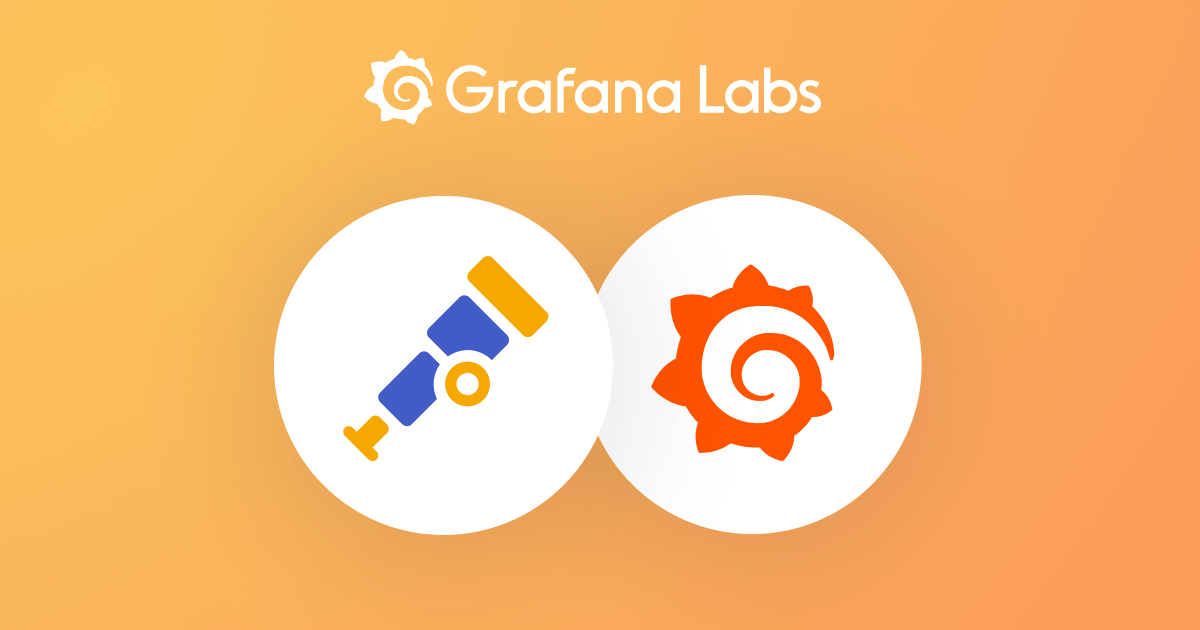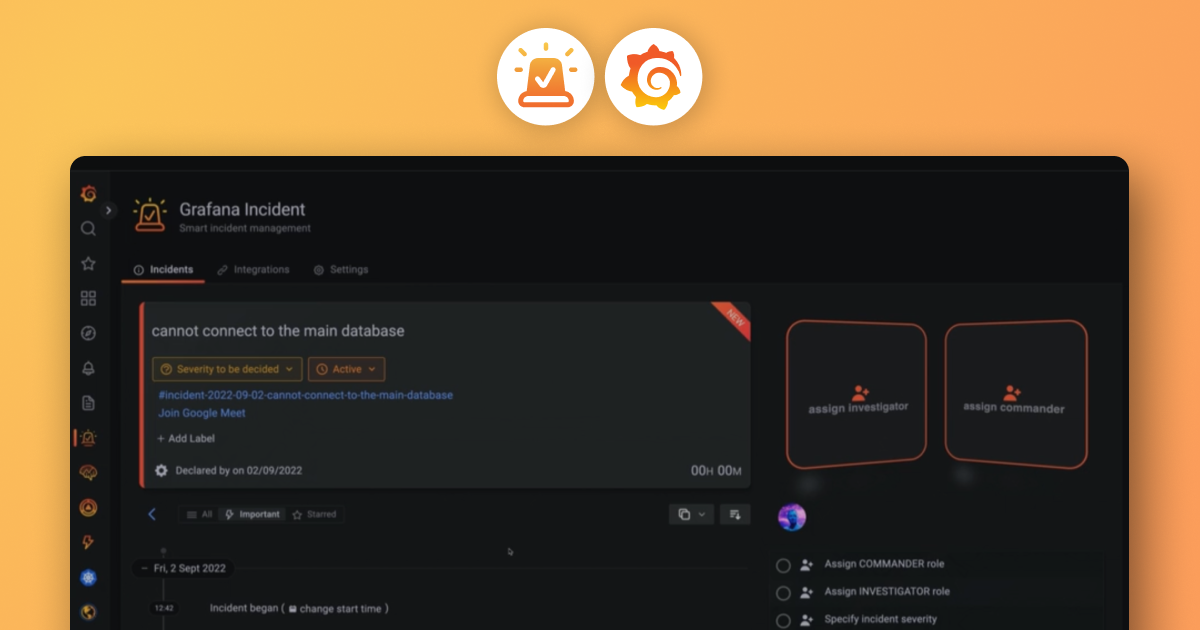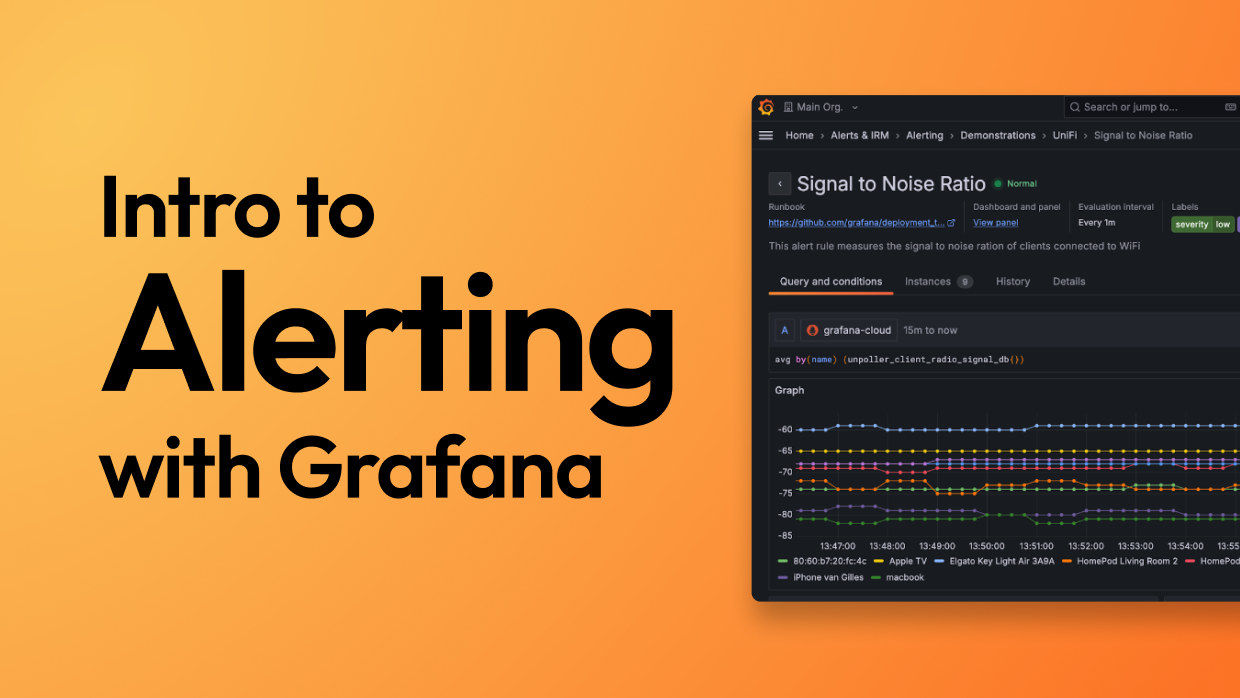Plugins 〉GitLab
GitLab
Instantly visualize GitLab data in Grafana
The GitLab data source plugin is the easiest way to pull GitLab data directly into Grafana dashboards.
- Visualize it either in isolation (one database) or blend it with other data sources.
- Discover correlations and covariances across all your data in minutes.
Grafana Cloud Free
- Free tier: Limited to 3 users
- Paid plans: $55 / user / month above included usage
- Access to all Enterprise Plugins
- Fully managed service (not available to self-manage)
Self-hosted Grafana Enterprise
- Access to all Enterprise plugins
- All Grafana Enterprise features
- Self-manage on your own infrastructure
Grafana Cloud Free
- Free tier: Limited to 3 users
- Paid plans: $55 / user / month above included usage
- Access to all Enterprise Plugins
- Fully managed service (not available to self-manage)
Self-hosted Grafana Enterprise
- Access to all Enterprise plugins
- All Grafana Enterprise features
- Self-manage on your own infrastructure
Grafana Cloud Free
- Free tier: Limited to 3 users
- Paid plans: $55 / user / month above included usage
- Access to all Enterprise Plugins
- Fully managed service (not available to self-manage)
Self-hosted Grafana Enterprise
- Access to all Enterprise plugins
- All Grafana Enterprise features
- Self-manage on your own infrastructure
Grafana Cloud Free
- Free tier: Limited to 3 users
- Paid plans: $55 / user / month above included usage
- Access to all Enterprise Plugins
- Fully managed service (not available to self-manage)
Self-hosted Grafana Enterprise
- Access to all Enterprise plugins
- All Grafana Enterprise features
- Self-manage on your own infrastructure
Grafana Cloud Free
- Free tier: Limited to 3 users
- Paid plans: $55 / user / month above included usage
- Access to all Enterprise Plugins
- Fully managed service (not available to self-manage)
Self-hosted Grafana Enterprise
- Access to all Enterprise plugins
- All Grafana Enterprise features
- Self-manage on your own infrastructure
Installing GitLab on Grafana Cloud:
Installing plugins on a Grafana Cloud instance is a one-click install; same with updates. Cool, right?
Note that it could take up to 1 minute to see the plugin show up in your Grafana.
Installing plugins on a Grafana Cloud instance is a one-click install; same with updates. Cool, right?
Note that it could take up to 1 minute to see the plugin show up in your Grafana.
Installing plugins on a Grafana Cloud instance is a one-click install; same with updates. Cool, right?
Note that it could take up to 1 minute to see the plugin show up in your Grafana.
Installing plugins on a Grafana Cloud instance is a one-click install; same with updates. Cool, right?
Note that it could take up to 1 minute to see the plugin show up in your Grafana.
Installing plugins on a Grafana Cloud instance is a one-click install; same with updates. Cool, right?
Note that it could take up to 1 minute to see the plugin show up in your Grafana.
Installing plugins on a Grafana Cloud instance is a one-click install; same with updates. Cool, right?
Note that it could take up to 1 minute to see the plugin show up in your Grafana.
Installing plugins on a Grafana Cloud instance is a one-click install; same with updates. Cool, right?
Note that it could take up to 1 minute to see the plugin show up in your Grafana.
For more information, visit the docs on plugin installation.
Installing on a local Grafana:
For local instances, plugins are installed and updated via a simple CLI command. Plugins are not updated automatically, however you will be notified when updates are available right within your Grafana.
1. Install the Data Source
Use the grafana-cli tool to install GitLab from the commandline:
grafana-cli plugins install The plugin will be installed into your grafana plugins directory; the default is /var/lib/grafana/plugins. More information on the cli tool.
Alternatively, you can manually download the .zip file for your architecture below and unpack it into your grafana plugins directory.
Alternatively, you can manually download the .zip file and unpack it into your grafana plugins directory.
2. Configure the Data Source
Accessed from the Grafana main menu, newly installed data sources can be added immediately within the Data Sources section.
Next, click the Add data source button in the upper right. The data source will be available for selection in the Type select box.
To see a list of installed data sources, click the Plugins item in the main menu. Both core data sources and installed data sources will appear.
Changelog
v2.3.13 - 2025-02-11
- ⚙️ Chore: Update backend dependencies
v2.3.12 - 2025-02-04
- ⚙️ Chore: Update frontend dependencies
v2.3.11 - 2025-01-20
- 🐛 Fix: Fix querying for merge requests
v2.3.10 - 2025-01-10
- ⚙️ Chore: Update backend dependencies
v2.3.9 - 2024-12-18
- ⚙️ Chore: Update backend dependencies
v2.3.8 - 2024-12-16
- ⚙️ Chore: Update backend dependencies
v2.3.7 - 2024-12-04
- ⚙️ Chore: Fix error source for empty access token
v2.3.6 - 2024-11-27
- 🧪 Tests: moving e2e tests to @grafana/plugins-e2e
v2.3.5 - 2024-11-12
- ⚙️ Chore: Updated backend dependencies
v2.3.4 - 2024-10-03
- ⚙️ Chore: Update frontend dependencies
- ⚙️ Chore: Minimal supported Grafana version is now
10.4.8
v2.3.3 - 2024-09-23
- ⚙️ Chore: Update backend dependencies
v2.3.2 - 2024-08-30
- ⚙️ Chore: update backend dependencies
v2.3.1 - 2024-08-27
- 🐛 Fix: Fix dashboard variable displayName
v2.3.0 - 2024-08-20
- 🚀 Feature: Apply dashboard timerange to Merge Request query type and increase page size to retrieve more rows in its query
v2.2.1 - 2024-08-15
- 🐛 Fix: Retrieve all merge requests in its query
v2.2.0 - 2024-07-05
- 🐛 Fix: Fix page limit config setting
- ⚙️ Chore: Rewrite variable editor to the new architecture
v2.1.0 - 2024-07-01
- ⚙️ Chore: Added SLO metrics to the plugin
v2.0.0 - 2024-06-19
- ⚙️ Chore: Simplify plugin's architecture
- ⚙️ Chore: Update backend dependencies
- BREAKING CHANGE: This release includes a breaking change for PROJECTS returned fields.
publicfield has been removed andpublic_buildsare nowpublic_jobsaccording to the GitLab API. Any queries that leverage tags will need to be updated manually.
v1.8.1 - 2024-04-05
- 🐛 Fix: Fix broken PDC
v1.8.0 - 2024-03-22
- 🐛 Fix: Fix fetching deployments.
- ⚙️ Chore: Update backend dependencies
v1.7.2 - 2024-03-13
- ⚙️ Chore: Backend binaries are now compiled with Go version
1.22.1
v1.7.1 - 2024-01-24
- ⚙️ Chore: Update backend dependencies
v1.7.0 - 2024-01-17
- ⚙️ Chore: Add error source to returned queries
v1.6.0 - 2023-12-01
- ⚙️ Chore: Fix security vulnerabilities, update backend and frontend packages
v1.5.1 - 2023-10-12
- 🐛 Fix: add dates that are not truncated in pipelines query
v1.5.0 - 2023-07-11
- ⚙️ Chore: Grafana 10 plug-in overhaul
v1.4.1 - 2023-06-08
- ⚙️ Chore: backend libs updated with golang:1.20.5
v1.4.0 - 2023-05-30
- 🚀 Feature: Secure socks proxy support added
v1.3.2 - 2023-05-04
- ⚙️ Chore: Backend binaries are now compiled with
golang:1.20.4which contains security fixes - ⚙️ Chore: Backend grafana SDK dependencies are updated
v1.3.1 - 2023-04-19
- ⚙️ Chore: Backend binaries are now compiled with
golang:1.20.3which contains security fixes - ⚙️ Chore: Backend grafana SDK dependencies are updated
v1.3.0 - 2023-03-16
- 🚀 Feature: enable alerting
v1.2.0 - 2023-02-06
- 🚀 Feature: Update error messages and tooltips
- ⚙️ Chore: Update internal frontend dependencies
- ⚙️ Chore: Update e2e tests
v1.1.0 - 2023-01-06
- 🚀 Feature: Start using default behavior for annotations (with extended query types and range support)
v1.0.2 - 2022-12-15
- ⚙️ Chore: Backend binaries compiled with latest go version 1.19.4
- ⚙️ Chore: Backend enterprise-sdk updated
v1.0.1 - 2022-11-07
- 🐛 Fix: Settings URL is now used instead of default URL
- ⚙️ Chore: Backend binaries compiled with latest go version 1.19.3
v1.0.0 - 2022-10-25
- 🚀 Feature: Add support for audit events, users, merge request approvals, field tags, and environments
- ⚙️ Chore: Update grafana dependencies to 8.4.7
- ⚙️ Chore: Backend compiled with latest go version 1.19.2
v0.2.0 - 2022-01-10
- 🚀 Feature: Add support for query merge requests and pipelines
v0.1.5 - 2022-01-10
- ⚙️ Chore: Update Licensing
v0.1.3 - 2021-04-12
- ⚙️ Chore: Update SDK
v0.1.2 - 2021-02-19
Features
- Query resources: Adds support for querying multiple GitLab API resources: projects, commits, issues, releases, deployments and labels.
- Template variables: Adds support for creating query template variables based on the available GitLab API resources.
- Annotations: Adds support for creating annotations based on the available GitLab API events: commits, issues, releases, deployments and environments.




